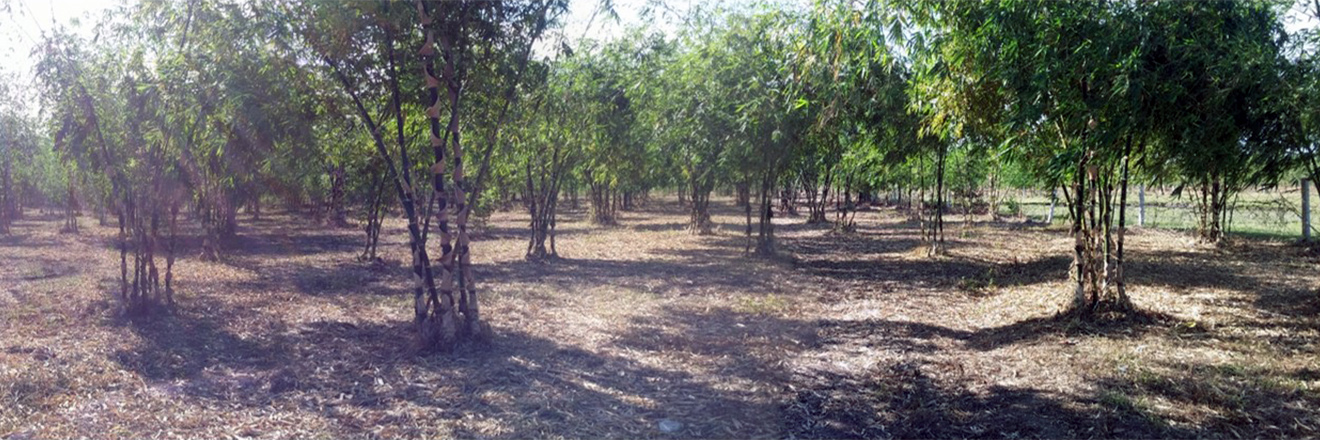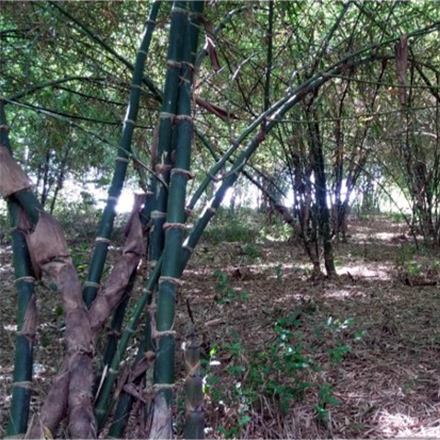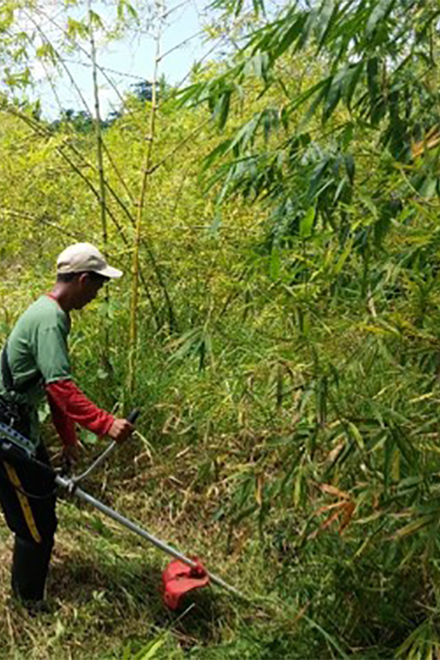
In 2010, the management of our affiliate, Universal Leaf Philippines, Inc. (ULPI), recognized bamboo’s importance and initiated a bamboo reforestation project to ensure a sustainable supply for our farmers. The Growing Operations group began the project by consulting farmer leaders. The group reviewed previous studies and existing literature to development sound bamboo production practices.
Through the project, we are working to rehabilitate existing bamboo sources as well as develop new plantings. The project includes two components—farmer-based plantings and corporate plantings.
ULPI began the farmer-based bamboo planting program in 2011 and backyard planting program in 2012. Farmers with idle and/or unproductive lands, ranging from 0.5 to 3 hectares (Ha), were recruited and informed about the project. We conducted GPS surveys and prepared farm plans and budgets. The farmers signed contracts for a 20-year growing period. As part of the project, we provide financial assistance and inputs to each farmer. A bamboo forestry technician provides technical assistance to each farmer regarding site preparation, planting, and maintenance activities. Continuous monitoring is conducted, and a monthly allowance is provided to the farmer to maintain the plantings. For backyard planting, 10 seedlings were distributed to 709 farmers. A total of 26.9 hectares was developed for the farmer-based program and 14 hectares was developed for the backyard program.
As the project progressed, larger and contiguous areas were leased for 25 years under the corporate growing plan. After conducting GPS surveys of the areas, we prepared farm plans and signed contracts with land owners. These leased areas are directly managed by ULPI, and continuous monitoring is conducted. We installed fencing around the areas and hired laborers to perform plant establishment, maintenance and protection under the supervisor of a forestry technician. A total of 106 hectares was developed, 20.9 hectares of which is maintained in partnership with one of our customers. To meet our project target of 200 hectares, the remaining 65 hectares will be planted through 2017, once the required land area is secured.
The first bamboo harvest occurs five years after planting and then annually thereafter. The project’s first harvested poles were delivered to ULPI tobacco farmers in in February 2016. Bamboo’s harvest productivity increases annually from this point onward until reaching full productivity in the ninth year, with a project harvest yield of nearly 1,700 poles per hectare. Bamboo’s minimum life expectancy is 50 years, which will provide our farmers with bamboo for decades to come.
Not only does the project offer the benefit of sustainable bamboo supply, but it also provides additional income-generating activity for members of the community—a win-win for Universal and for the community.







